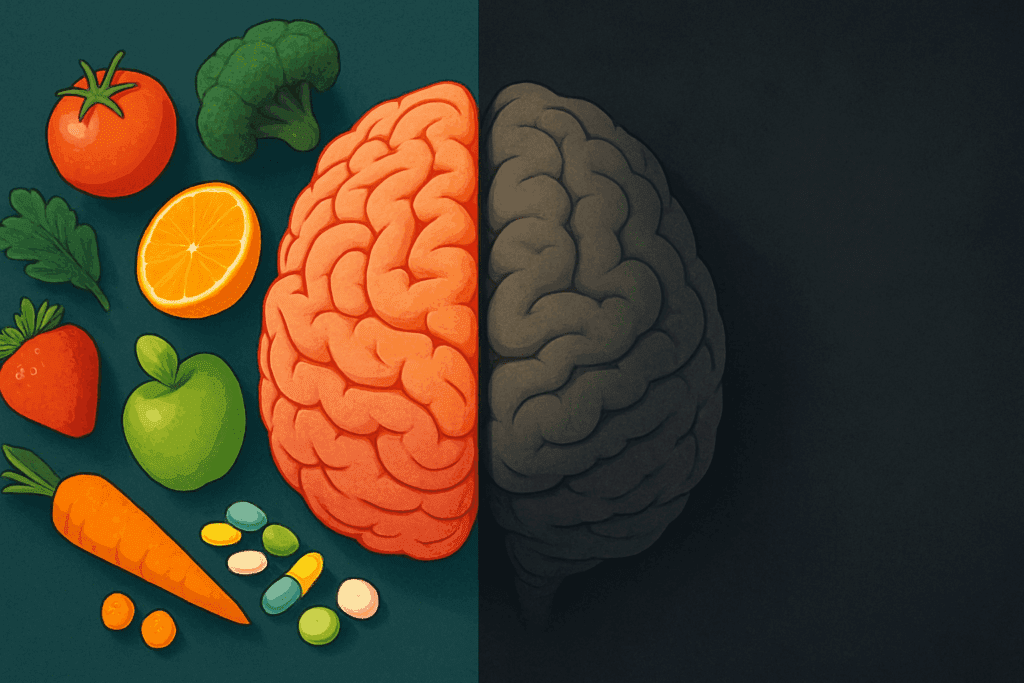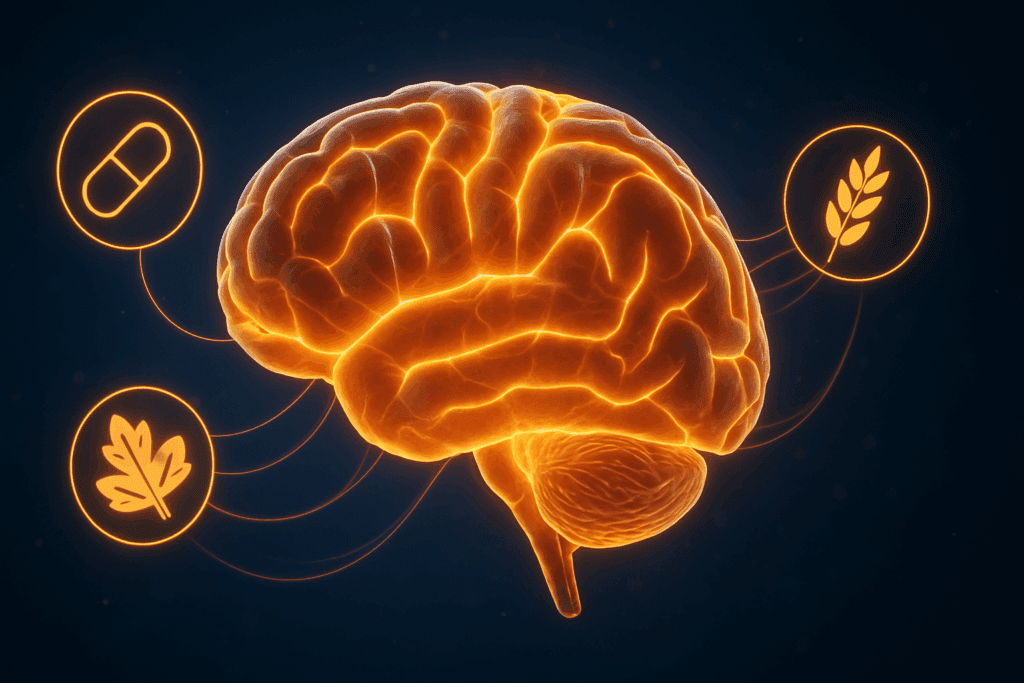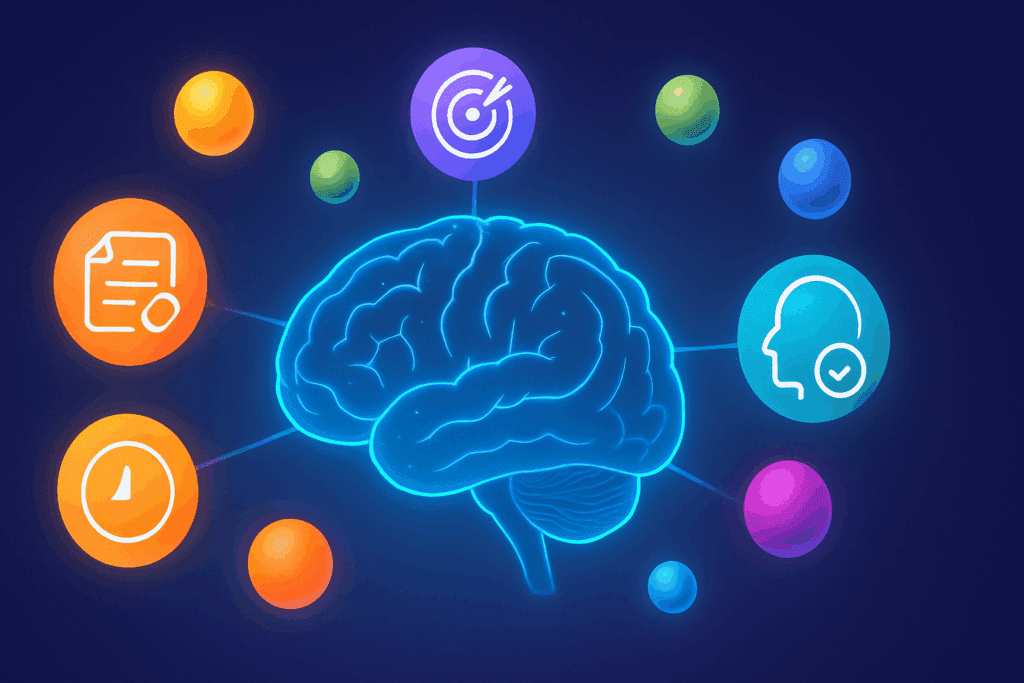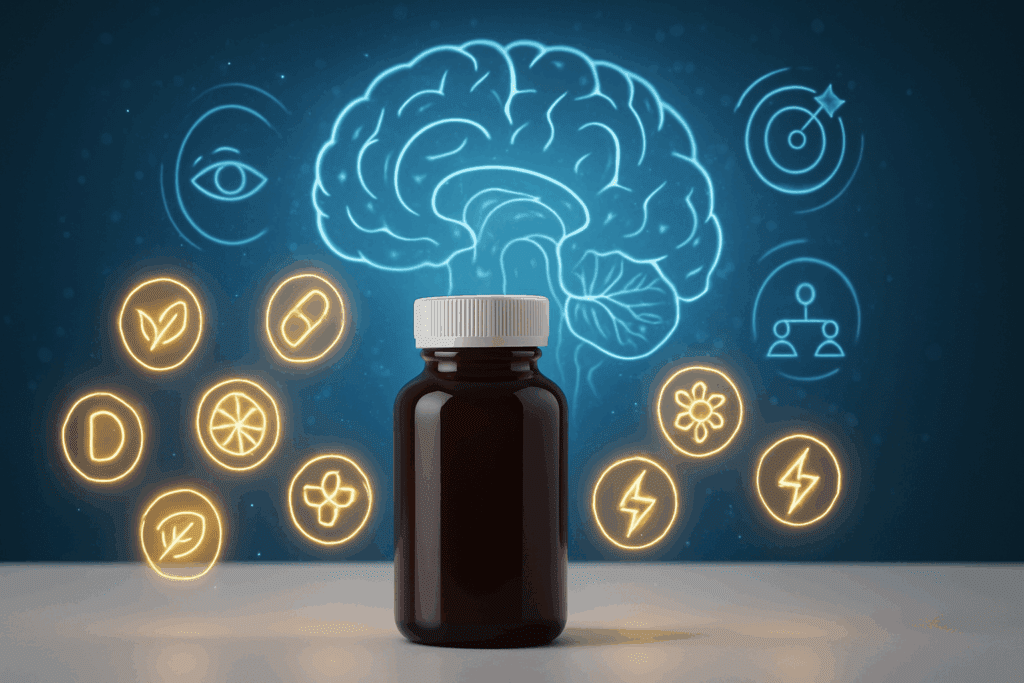In the evolving world of nutritional science, few topics have stirred as much public and scientific interest as multivitamin supplementation. While traditionally associated with general health and wellness, recent multivitamin research has expanded the conversation to encompass cognitive health, memory support, and decision-making. This shift reflects a growing body of evidence pointing to the multifaceted benefits of targeted nutrition for the brain, especially as modern lifestyles challenge our mental clarity and stamina. Within this expanding landscape, products like the Mindful Advantage Brain Supplement are being closely evaluated for their potential role in cognitive enhancement. This article delves into the latest findings, exploring how multivitamin effectiveness intersects with brain performance, the science behind current studies, and how nootropic formulations like Mindful Advantage may support sharper focus and improved decision-making.
You may also like: How to Choose the Best Brain Supplements for Adults: Science-Backed Ingredients That Support Focus, Memory, and Mental Clarity
Understanding Multivitamin Effectiveness in Cognitive Health
Multivitamins have long been a cornerstone of preventive health, providing essential nutrients that many individuals struggle to obtain from diet alone. However, discussions about multivitamin effectiveness have traditionally centered on physical well-being—immune support, bone health, and energy metabolism—rather than brain performance. That narrative is beginning to change. As the global population ages and cognitive decline becomes a mounting concern, researchers are reevaluating the role of multivitamins in supporting neurological function.
Recent multivitamin studies suggest that these supplements may play a vital role in protecting cognitive health over time. Emerging data from randomized controlled trials highlight how specific combinations of vitamins and minerals contribute to neural resilience and mental sharpness, particularly in older adults. Multivitamin efficacy is increasingly being linked to improvements in memory, executive function, and attention span, especially when supplementation corrects deficiencies that impair neurotransmitter function or cerebral blood flow. These findings are helping to redefine the perceived limitations of multivitamins, positioning them as a meaningful strategy not only for physical health but also for cognitive sustainability.

The New Wave of Multivitamin Research and What It Reveals
The last decade has witnessed a surge of interest in the neuroprotective potential of vitamins and minerals. New studies on vitamin supplements—especially those using advanced imaging and cognitive testing methodologies—are yielding more nuanced insights into how multivitamins affect the brain. A landmark multivitamin study conducted by researchers at Columbia University and Brigham and Women’s Hospital in 2023 demonstrated a measurable improvement in memory scores among older adults taking daily multivitamin and mineral supplements. Notably, this study employed rigorous placebo-controlled methods and a diverse participant base, enhancing its credibility and relevance.
What sets this new wave of multivitamin research apart is its emphasis on cognitive biomarkers and longitudinal analysis. Instead of simply assessing general health outcomes, scientists are now investigating specific domains of cognition such as working memory, processing speed, and decision-making accuracy. These refined approaches have strengthened the argument that multivitamin benefits extend beyond basic nutrient repletion. In fact, the current evidence indicates that multivitamin and mineral supplements may support brain health even in individuals who are not overtly nutrient-deficient, by optimizing neurotransmitter synthesis and reducing oxidative stress in brain tissue.
Exploring the Role of B Vitamins and Cognitive Clarity
B vitamins—particularly B6, B9 (folate), and B12—have garnered significant attention for their impact on brain function. These vitamins are involved in methylation processes critical for neurotransmitter production and are linked to homocysteine regulation, which, when elevated, has been associated with cognitive impairment. The vitamin supplement study literature consistently emphasizes the importance of B vitamin sufficiency in maintaining mental clarity and reducing age-related decline.
The link between B vitamins and decision-making ability is of particular interest. Executive functions, including planning, attention shifting, and impulse control, depend on optimal neural transmission and glucose metabolism—both of which are influenced by B vitamins. Several multi vitamin studies have shown that consistent intake of B-complex vitamins improves mental performance in tasks requiring rapid information processing and rational judgment. These results have spurred the inclusion of targeted B vitamins in specialized nootropic formulations, such as the Mindful Advantage Brain Supplement, which leverages their benefits in concert with other synergistic compounds.
Multivitamin Benefits and Cognitive Performance in Young Adults
While much of the existing research has focused on older populations, recent studies are turning attention to younger adults and students. Cognitive fatigue, stress, and information overload are common challenges in academic and professional environments, prompting new questions about how nutritional support may enhance cognitive efficiency in these groups. In this context, multivitamin benefits are being reevaluated for their capacity to sharpen mental agility, improve task-switching abilities, and reduce mental errors under pressure.
One notable multivitamin study from the University of Northumbria found that young adults who supplemented with multivitamin and mineral blends for 30 days showed significant improvements in attention and task performance, particularly under stressful conditions. The researchers suggested that even minor deficiencies—often unrecognized—can negatively influence brain function, and that correcting these through supplementation offers measurable performance gains. These findings underscore the broader implications of multivitamin efficacy across the lifespan, from adolescence through late adulthood, and point to the potential role of comprehensive supplements like Mindful Advantage in supporting consistent mental output throughout the day.

Current Evidence Indicates That Multivitamin and Mineral Supplements Support Brain Resilience
Accumulating data from both observational and interventional studies indicates a strong correlation between multivitamin use and cognitive resilience. While causation is difficult to establish definitively, the consistency of findings across diverse populations and methodologies lends significant weight to the argument. Meta-analyses of placebo-controlled trials report small but statistically significant benefits in memory and attention among multivitamin users, reinforcing the notion that long-term brain health may be influenced by micronutrient status.
Critically, current evidence indicates that multivitamin and mineral supplements are especially valuable when tailored to address the unique demands of the brain. Formulations designed with bioavailable nutrients, such as methylated folate or active B12 (methylcobalamin), demonstrate superior absorption and efficacy compared to generic alternatives. The Mindful Advantage Brain Pill exemplifies this approach, offering an evidence-informed blend of cognitive enhancers that include these optimized forms. Such products are increasingly viewed not as mere dietary aids, but as strategic tools in mental performance and neuroprotection.
How the Mindful Advantage Brain Supplement Aligns With Modern Cognitive Needs
Designed to meet the demands of high-functioning individuals, the Mindful Advantage Brain Supplement integrates a diverse array of vitamins, minerals, and botanical extracts known to support brain health. Unlike traditional multivitamins that offer broad-spectrum coverage without specific targets, Mindful Advantage focuses on key cognitive domains including memory retention, focus, and mental clarity. Its formulation reflects an in-depth understanding of nutritional neuroscience and synergistic ingredient interaction.
Key components such as vitamin D, magnesium, and adaptogenic herbs complement the multivitamin base, contributing to mood stability, energy regulation, and stress modulation. This integrative design is particularly relevant in the context of decision-making optimization, as cognitive performance is not only a matter of nutrient availability but also neurochemical balance. By addressing multiple factors simultaneously, the Mindful Advantage Brain Pill exemplifies the next generation of multivitamin research translated into real-world application.

Multivitamin Efficacy and the Intersection of Nutrition and Neuropsychology
The science of nutrition is increasingly being informed by the principles of neuropsychology, a field that explores how brain structure and function relate to behavior and cognition. This interdisciplinary perspective is crucial when evaluating multivitamin efficacy in cognitive domains. For instance, a growing body of research links deficiencies in magnesium, zinc, and selenium to increased anxiety, poor concentration, and impaired short-term memory. Supplementing these minerals has shown promise in restoring cognitive equilibrium, particularly in individuals experiencing chronic stress or mental fatigue.
In parallel, new study on vitamin supplements continues to validate the role of antioxidants—such as vitamins C and E—in protecting neural integrity by reducing oxidative stress. These vitamins play a crucial role in preserving the fluidity and function of neuronal membranes, thereby supporting synaptic efficiency. When included in multivitamin research, these compounds are frequently associated with improved attention and reduced mental lapses. The integration of such insights into products like Mindful Advantage not only enhances the theoretical basis for supplementation but also bridges the gap between laboratory findings and daily mental performance.
Real-World Applications of Multivitamin Research in Cognitive Enhancement
One of the most exciting developments in recent multivitamin research is its growing applicability to everyday life. As the workplace becomes more cognitively demanding and digital distractions increase, tools for enhancing mental endurance are in high demand. Multivitamin supplementation offers a practical and scientifically sound option, particularly for individuals with suboptimal dietary habits or elevated cognitive workloads. The multivitamin news cycle increasingly reflects this shift, showcasing how targeted nutrition can empower professionals, students, and aging populations alike.
Mindful Advantage is emblematic of this trend, combining the rigor of clinical multivitamin study design with the accessibility of consumer health solutions. Its formula, informed by clinical evidence and cognitive performance metrics, allows users to support their mental capacity proactively. For example, professionals in high-stakes industries may benefit from the supplement’s focus-enhancing compounds during complex decision-making scenarios. Likewise, students preparing for exams may experience improved concentration and mental stamina, particularly when nutritional stressors are addressed simultaneously.
Integrating Multivitamin Benefits Into a Holistic Cognitive Health Strategy
While multivitamin supplementation offers promising benefits, it is most effective when incorporated into a comprehensive cognitive health regimen. This includes adequate sleep, physical exercise, mental stimulation, and stress management—all of which interact with nutritional status to influence brain function. The current evidence indicates that multivitamin and mineral supplements can serve as valuable enhancers within this framework, helping to sustain cognitive performance during periods of elevated mental demand.
The holistic approach embodied by the Mindful Advantage Brain Supplement reflects this understanding. Its formulation does not rely on a single “magic bullet” ingredient but instead promotes cognitive clarity through layered support. This aligns with findings from multi vitamin studies that emphasize the importance of nutrient synergy and physiological context. As our knowledge of brain nutrition deepens, the integration of supplements like Mindful Advantage into personalized cognitive health plans is likely to become increasingly mainstream.

Frequently Asked Questions (FAQ) About Multivitamin Research and Effectiveness
1. How does multivitamin effectiveness vary based on age and life stage?
Multivitamin effectiveness can differ significantly depending on age and physiological needs. For instance, older adults often experience decreased nutrient absorption, particularly for B12, vitamin D, and calcium—making tailored supplementation more beneficial. In contrast, young adults might not see the same degree of impact unless they have specific dietary gaps or lifestyle-related deficiencies. Current evidence indicates that multivitamin and mineral supplements offer the most consistent benefits when customized to meet life stage demands, such as prenatal formulas for pregnant women or cognitive blends for seniors. Ongoing multivitamin research continues to examine how personalized formulations may increase multivitamin efficacy across age groups.
2. What role do multivitamins play in supporting cognitive performance and mood?
Emerging multivitamin research suggests a promising link between consistent supplementation and cognitive function. A multi vitamin study published recently found that adults over 60 who used targeted multivitamin blends saw modest improvements in memory recall and executive function. Additionally, micronutrients like B6, folate, and magnesium influence neurotransmitter synthesis, which can affect mood regulation and focus. While results vary, a growing number of multivitamin studies now explore neurocognitive outcomes, especially under conditions of chronic stress or nutrient-poor diets. These findings signal a shift toward exploring the mental health benefits of daily vitamin supplement use.
3. Can multivitamins improve immunity even in individuals with a well-balanced diet?
Even those with seemingly optimal diets may benefit from multivitamin use, especially during periods of stress, travel, or seasonal immune dips. A recent new study on vitamin supplements showed that individuals who took a multivitamin during flu season had shorter illness durations and milder symptoms. This may be due to immune-modulating vitamins like C, D, E, and zinc, which help maintain cellular defenses. However, multivitamin efficacy in healthy populations tends to be subtler and may function more as preventive support than a direct immune booster. Multivitamin benefits in this context often accumulate over time rather than showing immediate results.
4. Do multivitamins offer the same benefits for men and women?
No, the nutritional needs of men and women differ, and so does their response to multivitamin supplementation. For example, women often need more iron and folate, particularly during menstruation and pregnancy, while men may benefit from higher zinc and selenium for prostate health. A vitamin supplement study found that gender-specific multivitamins resulted in improved biomarker levels compared to gender-neutral formulations. As multivitamin news increasingly focuses on bio-individuality, it’s likely we’ll see even more specialized products tailored for hormonal health, fertility, and metabolic needs across genders. These differences underscore the importance of choosing gender-specific formulations when evaluating multivitamin benefits.
5. Are food-based multivitamins more effective than synthetic ones?
The debate over food-based versus synthetic multivitamins is evolving. Some multivitamin studies suggest that food-derived vitamins may be better absorbed due to their natural cofactors, such as enzymes and phytonutrients. However, others argue that synthetic vitamins can be equally effective when formulated with proper bioavailability enhancers. One new study on vitamin supplements emphasized the role of delivery systems—such as liposomal or slow-release capsules—in enhancing nutrient uptake regardless of source. Ultimately, multivitamin effectiveness may depend more on formulation quality and individual absorption capacity than whether ingredients are natural or synthetic.

6. How reliable are multivitamin studies when assessing long-term health outcomes?
Multivitamin studies often face limitations due to participant variability, study durations, and confounding lifestyle factors. For instance, individuals who take multivitamins are more likely to engage in other health-promoting behaviors, complicating outcome attribution. Nevertheless, long-term cohort studies such as the Physicians’ Health Study and COSMOS trial have contributed valuable data. These trials help establish that while multivitamin efficacy is not always dramatic, consistent use may reduce risk factors for chronic conditions, particularly when dietary insufficiencies are present. As multivitamin research continues, more rigorous, stratified studies are emerging to offer clearer, long-term insights.
7. What is the connection between multivitamins and cardiovascular health?
Though multivitamins are not substitutes for heart medications, several studies suggest they may play a supporting role. A multi vitamin study involving over 20,000 participants noted a slight reduction in cardiovascular events among consistent multivitamin users, especially when combined with a healthy lifestyle. Micronutrients like B-complex vitamins, magnesium, and antioxidants help regulate homocysteine levels and support endothelial function. While current evidence indicates that multivitamin and mineral supplements alone won’t prevent heart disease, they can complement dietary efforts to maintain vascular integrity. These findings add nuance to the public’s understanding of multivitamin benefits beyond basic nutrition.
8. How does multivitamin efficacy relate to stress and sleep quality?
Recent multivitamin research has begun exploring their adaptogenic potential in moderating stress and improving sleep. B vitamins, magnesium, and ashwagandha-infused blends have shown promise in reducing cortisol levels and promoting relaxation. One vitamin supplement study found that participants experienced better sleep continuity and fewer stress-related symptoms after 8 weeks of daily use. While not a replacement for therapy or behavioral changes, multivitamin effectiveness in this context offers a complementary strategy for managing the physiological effects of stress. These benefits are especially relevant for individuals experiencing burnout or chronic fatigue.
9. What are the most overlooked factors that impact multivitamin absorption?
Many users overlook factors that reduce nutrient absorption, such as gut health, timing, and nutrient interactions. For instance, calcium can inhibit iron absorption when taken together, and fat-soluble vitamins (A, D, E, K) require dietary fat for optimal uptake. Emerging multivitamin news highlights the role of gut microbiota in synthesizing and absorbing vitamins—especially B12 and K2. Moreover, some prescription drugs (like antacids or metformin) impair nutrient absorption, making supplementation more crucial. Understanding these interactions enhances the real-world application of multivitamin benefits and helps users make more informed decisions.
10. What trends are shaping the future of multivitamin formulation?
The future of multivitamin formulation is heading toward precision and personalization. Advances in genomics and microbiome testing now allow companies to create data-driven, individualized supplements. Multivitamin news increasingly covers AI-powered platforms that adjust dosages based on real-time biomarkers or lifestyle changes. New study on vitamin supplements are also exploring nanotechnology and encapsulation methods to improve stability and targeted delivery. As the industry integrates more science-backed personalization, we’re moving away from one-size-fits-all models toward tailored multivitamin efficacy that meets specific genetic and environmental needs.

Conclusion: What Multivitamin Research Tells Us About Supporting Mental Clarity and Informed Decisions
As new multivitamin research continues to illuminate the connection between nutrition and brain health, the landscape of cognitive support is undergoing a significant transformation. Gone are the days when multivitamins were viewed merely as general wellness boosters. Today, a robust body of multivitamin research, including cutting-edge multivitamin studies and clinical trials, demonstrates how these supplements can meaningfully enhance cognitive function, mental clarity, and decision-making ability.
From young professionals facing daily information overload to older adults concerned with cognitive preservation, the benefits of strategic supplementation are becoming increasingly clear. The Mindful Advantage Brain Supplement stands out as a sophisticated response to these needs, synthesizing insights from neuroscience, nutritional biochemistry, and psychology into a single, accessible formula. It reflects the current scientific consensus that multivitamin efficacy is closely linked not only to nutrient presence but to bioavailability, ingredient synergy, and targeted cognitive outcomes.
In this context, the multivitamin benefits discussed are not merely theoretical. They translate into real-world advantages—greater focus, quicker decision-making, and improved mental endurance. As the multivitamin news cycle continues to report on emerging breakthroughs, and as ongoing multi vitamin studies refine our understanding of nutrient-brain interactions, it is increasingly evident that the mindful use of supplements can be a cornerstone of cognitive enhancement strategies.
Ultimately, the integration of science-backed multivitamin and mineral supplements into daily routines, particularly those formulated with intention like the Mindful Advantage Brain Pill, offers a powerful yet accessible path toward optimizing cognitive clarity, maintaining decision-making sharpness, and navigating modern mental challenges with confidence and clarity.


